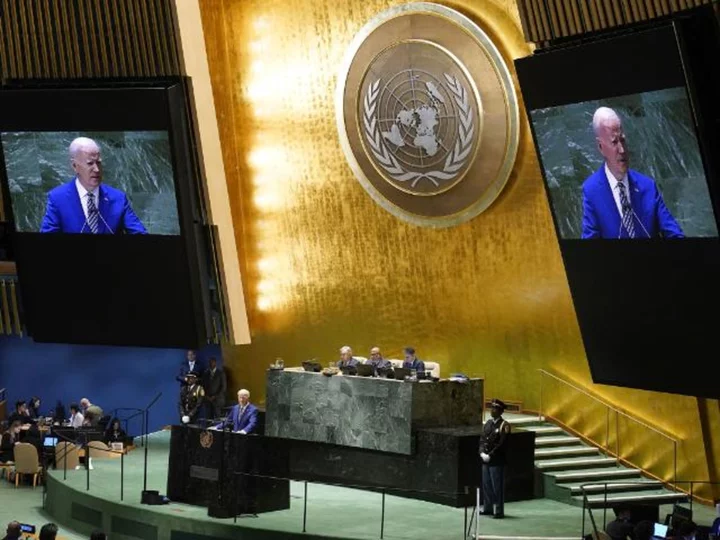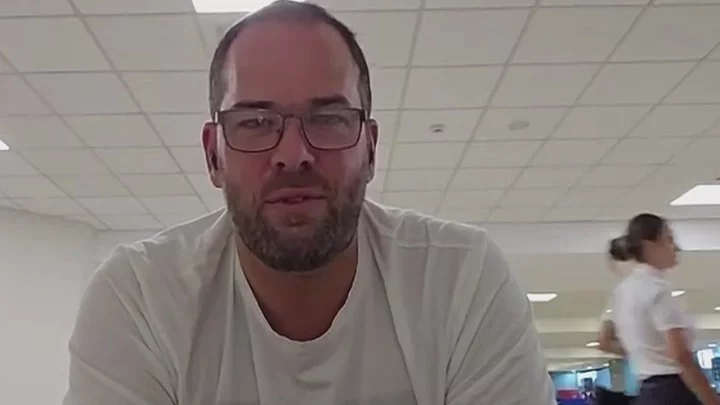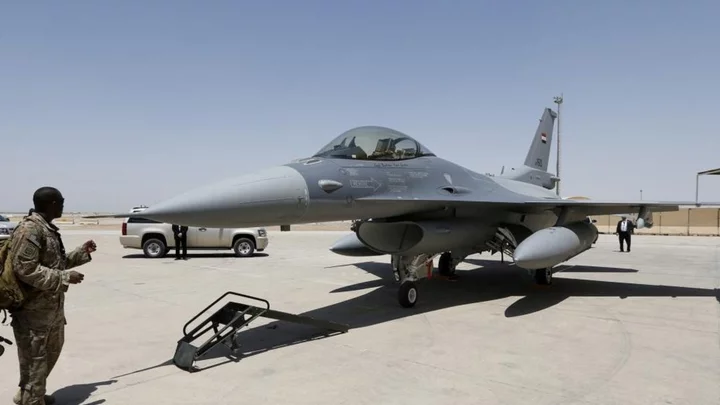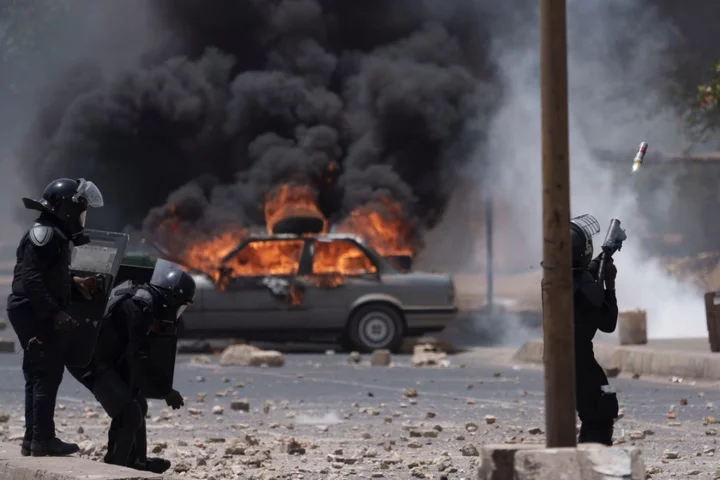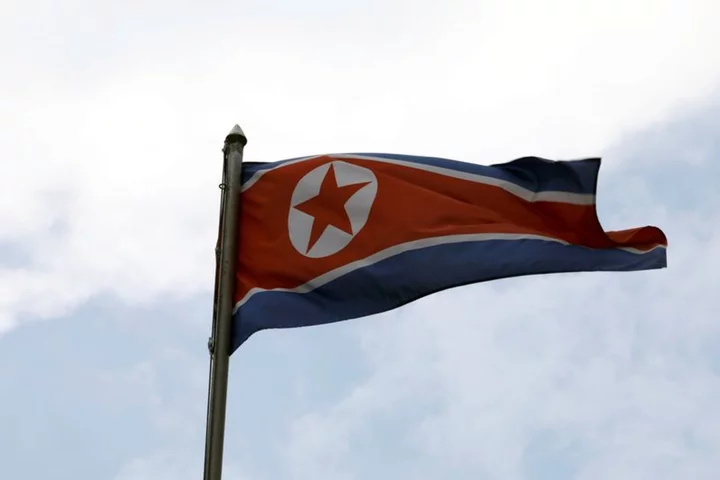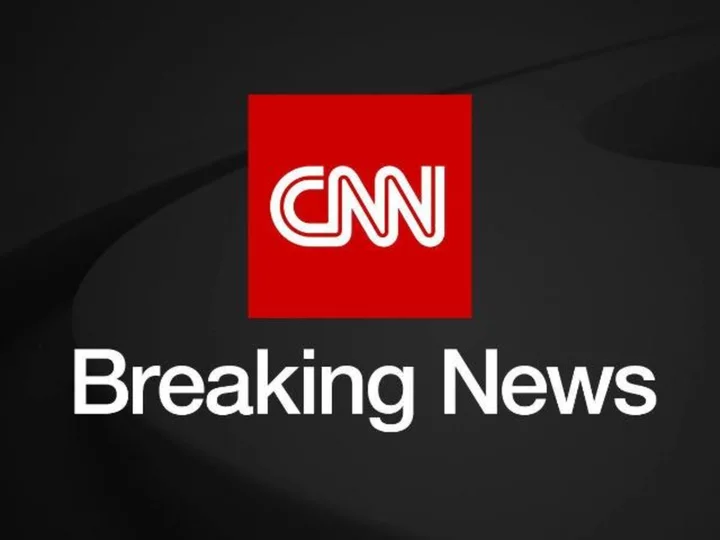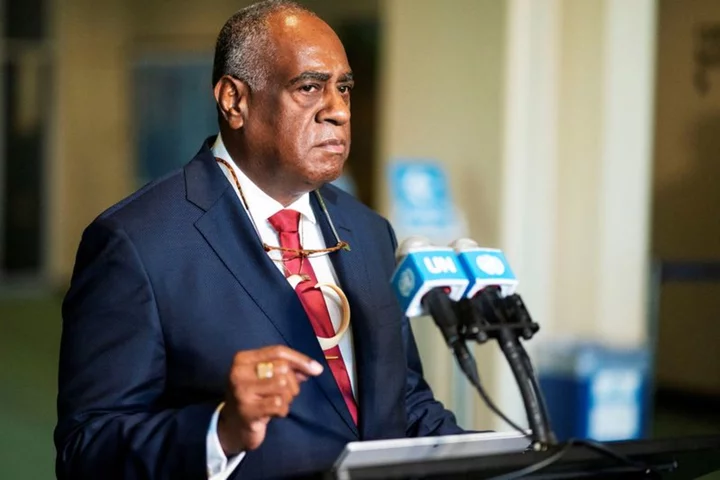President Joe Biden addressed the United Nations Tuesday and urged the world to stand by Ukraine. At times, it felt like he was also imploring the countries to stick with the United Nations.
"If we abandon the core principles of the UN charter to appease an aggressor, can any member state in this body feel confident that they are protected?" Biden asked.
Read the UN charter here. It was agreed to in a very different world -- in San Francisco in 1945 -- with different global powers, different threats and different economies. Ukraine, at the time a member of the Soviet Union, was also a founding member of the UN.
On Tuesday, Ukrainian President Volodymyr Zelensky made his first in-person address to the UN General Assembly since Russia invaded his country. He wanted to drive home that negotiating with Russia would equal failure.
"The aggressor is weaponizing many other things, and those things are used not only against our country, but against all of yours as well, fellow leaders," Zelensky said.
Multiple top world leaders skipped the meeting this year, including President Vladimir Putin of Russia, which is a villain for invading Ukraine, but also a permanent member of the UN Security Council with veto power over any resolutions it opposes.
Of the five permanent Security Council members -- the US, Russia, China, France and the United Kingdom -- Biden is the only leader to attend. CNN's senior UN correspondent Richard Roth noted this may not be unprecedented but also could weaken the impact of the event this year.
The bedrock needs updating
While Biden called international institutions created at the end of World War II -- the UN, the World Bank, the World Trade Organization and others -- "an enduring bedrock of our progress," he also acknowledged the need to reorient them toward a changing world.
He reiterated support for expanding the UN Security Council, although it's hard to see how countries like Russia, China or the US, for that matter, would give up the permanent veto power that affords them so much power.
Speaking before Biden, Brazilian President Luiz Inácio Lula da Silva, who wants to turn his country into a leader of the southern hemisphere, said the Security Council "has been progressively losing its credibility" precisely because a few countries wield so much power.
"This frailty is the specific result of actions from its permanent members who wage unauthorized wars or regime change. Its paralysis is the most eloquent proof of the urgent need to reform it, which will bring it greater representation and efficacy," he said.
And by using the words "regime change," a term more associated with the US, he can't have been only referring to Russia.
'Forum shopping' by world leaders
Asked on CNN how the absence of key world leaders hangs over the conference, CNN's senior White House correspondent Kayla Tausche explained, in dizzying detail, just how many opportunities these world leaders have to meet up. Her words are in italics below and my notes are in parentheses:
Many of those world leaders were just in India together for the G20 (earlier this month, although China's Xi Jinping skipped that one too).
And then, of course, there was the BRICS summit of emerging market nations in South Africa that took place in August. (Xi did attend, but the US is not a BRICS member. BRICS stands for Brazil, Russia, India, China and South Africa, although other countries have been invited to join.)
Later this fall, you have APEC, which is an Indo-Pacific focused economic summit that is going to be taking place in San Francisco. That's really where administration officials are expecting President Biden and President Xi of China to possibly meet on the sidelines of that visit in a bilateral format. (Biden skipped last year's APEC summit, but Xi attended).
And then you have COP-28, which is the climate-focused summit, which is taking place in Dubai. (COP stands for Conference of the Parties to the United Nations Framework Convention on Climate Change. So it is a UN-sponsored event).
So there are all of these various fora for leaders to be meeting, and when you talk to foreign policy experts, they say that some leaders go forum shopping. If they feel like they can't get from the UN or the G20 what they're trying to get, then they will go somewhere else.
CNN's Jim Sciutto noted that some of the meetings and fora for world leaders are "directly competitive" to the UN "and also the US view of the world."
"BRICS is expanding because you have a meeting of the minds -- quite a disparate group of nations there -- but a meeting of the minds at what they perceive as an overbearing US power," he said.
The whole point of the UN charter was not to strategically foster alliances but rather to create an open forum and head off conflicts.
Convincing countries the UN has helped them
Most of Biden's address did not actually focus on Ukraine. Instead, he talked about how climate change, inequality and other cross-border issues require the structure of an inclusive international order.
The UN is an organization whose efficacy has been questioned for years; whose influence has waned due to bureaucracy and deadlock; and whose charter was inarguably violated by Russia. But Russia has tried to build support among developing nations.
"The president was making the pitch for the rules-based international order, which has underscored relative stability and prosperity over the past 70 years," said John Herbst, the former US ambassador to Ukraine, speaking to CNN's John Berman after Biden's speech.
"In 1950, 70% of the world's population lived in absolute poverty. Because of the absence of major war, today that number is under 10%. People need to understand the relationship between these rules and the benefits they enjoy," Herbst said.
The CNN contributor and Russia expert Jill Dougherty noted the Chinese foreign minister also skipped the UN General Assembly and was instead attending meetings in Russia.
Developing countries, she argued, may see more value in more focused organizations.
"What we have right now is a lack of faith in international institutions, most of which were started by the United States after World War II," she said.
Issues cut across borders
Anthony Banbury is a former UN assistant secretary general for field support who resigned back in 2016 after working for many years both at the UN in New York and in the field. While he supported the mission of the UN, he said the organization had lost its way.
"If you locked a team of evil geniuses in a laboratory, they could not design a bureaucracy so maddeningly complex, requiring so much effort but in the end incapable of delivering the intended result," he wrote in an opinion piece for The New York Times back then.
I asked Banbury, who now works for a nonprofit that tries to help democracies abroad, how the intervening years have changed his opinion.
UN-backed aid organizations that help children, refugees and the hungry -- UNICEF, UNHCR and the World Food Programme -- can do important work, he said. But in the area of peacekeeping and conflict resolution, the UN has become less and less impactful, Banbury argued, pointing specifically to Haiti, where the UN used to keep peacekeepers, but the country is now overrun by gangs.
Banbury argued the Covid-19 pandemic should have been a moment for the UN to show leadership, but it did not.
"The UN has to show that they can help countries help the population of countries on issues that are really critical, particularly those that cut across borders," he said.
Biden's new tone on democracy in the US
Biden's address to the UN was beamed worldwide, but he gave another notable talk this week that only some donors in New York saw Monday night.
At a campaign fundraiser in which he spoke from the stage of the Broadway theater currently staging the musical "Sweeney Todd," Biden seemed to be trying out material for the coming presidential campaign, according to CNN's Kevin Liptak and Betsy Klein.
Speaking off camera, he named former President Donald Trump and argued democracy is again on the ballot in 2024.
"Let there be no question: Donald Trump and his MAGA Republicans are determined to destroy American democracy, and I will always defend, protect and fight for our democracy," Biden said. "That's why I'm running."
He also directly answered the nagging questions about his age.
"A lot of people seem focused on my age. Believe me, I know better than anyone," Biden said, attempting to turn his long experience into an asset.
"When this nation was flat on its back, I knew what to do," he said.
On Ukraine, he said, "I knew what to do, to rebuild alliances."
"When democracy was at stake, I knew what to do," he concluded.

